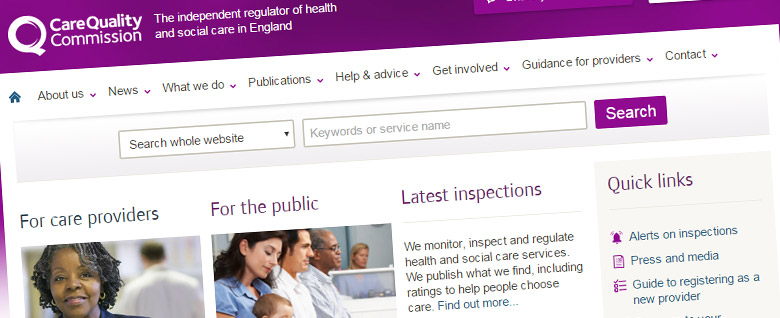Following an inspection by the CQC, the first challenge which providers are likely to encounter is a factual accuracy challenge against a draft inspection report.
Before the CQC’s inspection report is published, providers are given the opportunity to challenge the accuracy and completeness of the information in the draft inspection report on which the ratings are based. This allows providers to submit their comments to the CQC on any typographical or numerical errors, information which they consider to be factually incorrect, or additional information regarding the position at the time of the inspection that addresses an issue not discussed in the draft report or which the provider considers has an impact on a rating judgement. Providers are usually given ten working days to submit any representations.
At this stage, it is vital that providers make detailed and supported challenges to any findings within the draft report that are not accurate or consistent with the CQC’s strategy and framework. However, it is important to note that, for a challenge to stand any prospect of being successful, it must be supported by clear documentary evidence, which was available to the inspectors on the day of the inspection.
It is sometimes the case that providers do not submit factual accuracy comments even where they are not satisfied with the accuracy or completeness of a draft report. This may be because they do not think it will make a difference or in some cases, they do not wish to aggravate matters with their inspector. This is entirely the wrong course of action; providers should always make clear, robust challenges against draft reports, whatever the circumstances may be. If no challenge is made to a draft report and it is subsequently published, there is a presumption that the contents of the published report is entirely accurate. There is also no record that a provider has challenged any of the findings within the inspection report, which is often used as the basis for a decision by the CQC to pursue enforcement action. It is also much more difficult for providers to dispute the need for enforcement action on the basis of unchallenged inspection findings.
Ratings review request
If a provider is not happy with the outcome of the factual accuracy process, there is subsequently an option to request a review of the ratings. The only ground for requesting a review is that the inspector did not follow the process for making ratings decisions and aggregating them. The CQC must be notified of a provider’s intention to request a review within 5 working days of the report being published. The full request must then be submitted to the CQC within 15 working days of publication of the report; it cannot be made before publication. Both the intention and full request must be submitted via the CQC’s online web forms. However, it is important for providers to be aware that the CQC recently limited a provider’s ability to challenge ratings by capping any full challenge to just 500 words. This means that the factual accuracy process is even more important as the CQC will no doubt have to reconsider any factual accuracy challenge made when considering a ratings review.
When making a ratings review request, providers must state which particular ratings they want to be reviewed as well as the grounds upon which they are requesting the review. Providers only have one opportunity to submit a ratings review request and it is therefore vital that this is completed correctly; any subsequent request in respect of the same inspection report will not be considered by the CQC. It is also important to note that a review of ratings cannot only result in an increase in ratings, but also a decrease too.
Unfortunately, it has become very apparent over the past few years that it is extremely difficult for providers to successfully challenge the CQC in respect of the ratings awarded. Figures published by the CQC on their website on 5th July 2017, in relation to the ratings review outcomes to 30th June 2017, demonstrate that out of 387 ratings review requests across the adult social care sector, only 21 resulted in a ratings increase due to the correct ratings process not being followed. Additionally, out of those 387 requests, a massive 274 requests were closed on the basis that there were no grounds for making the request.
Whilst the success rates of these challenges appear to be low, if a request is not made, the CQC will not look to consider the published ratings and they will remain unchanged. In the most serious of cases, where a negative rating escalates to enforcement action, clear challenges to the factual accuracy of a draft report and the published ratings can provide helpful evidence in any appeal against such enforcement action.
Contact our specialist CQC lawyers
At Stephensons, we have represented numerous care providers in relation to the factual accuracy and ratings review processes. We have achieved success at persuading the CQC to amend and even remove parts of an inspection report prior to publication, as well as persuading the CQC to withdraw an inspection report from publication and carry out a fresh inspection. If you require any advice and assistance in relation to challenging the CQC, please contact our specialist CQC lawyers now on 01616 966 229.




Comments